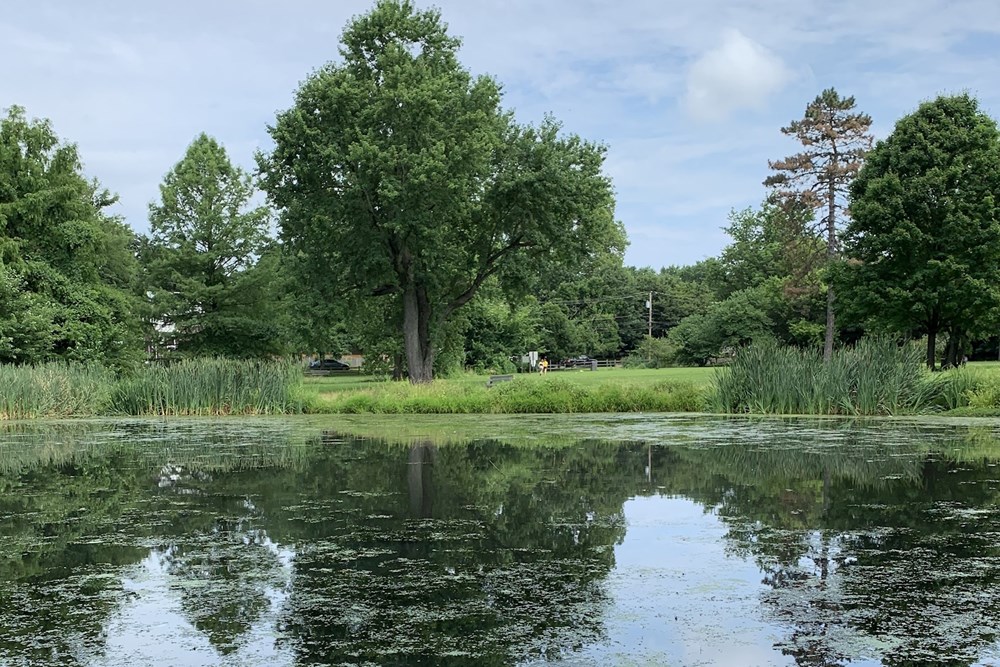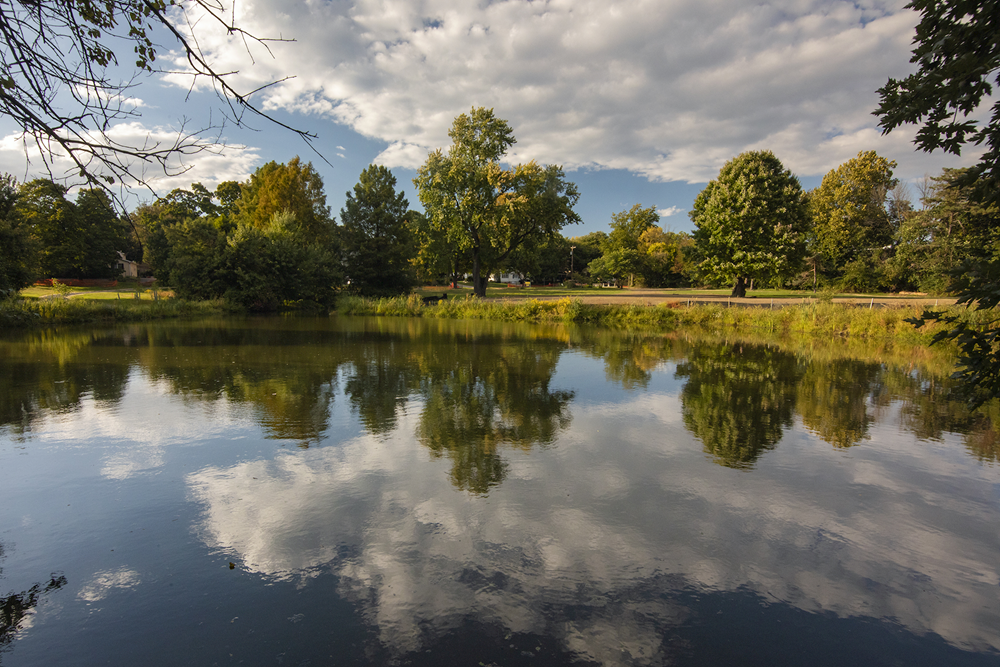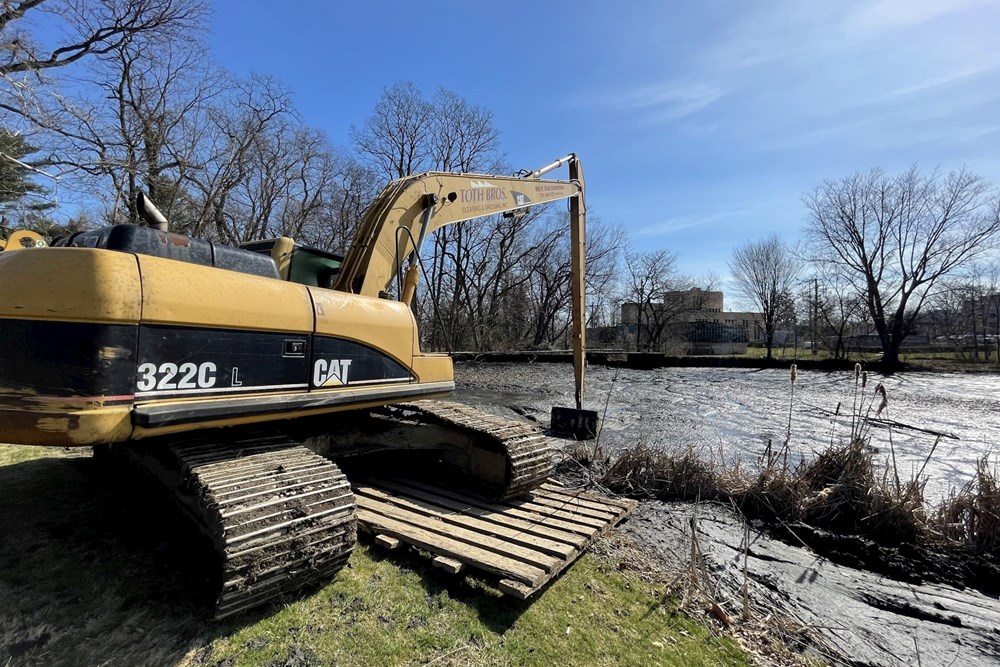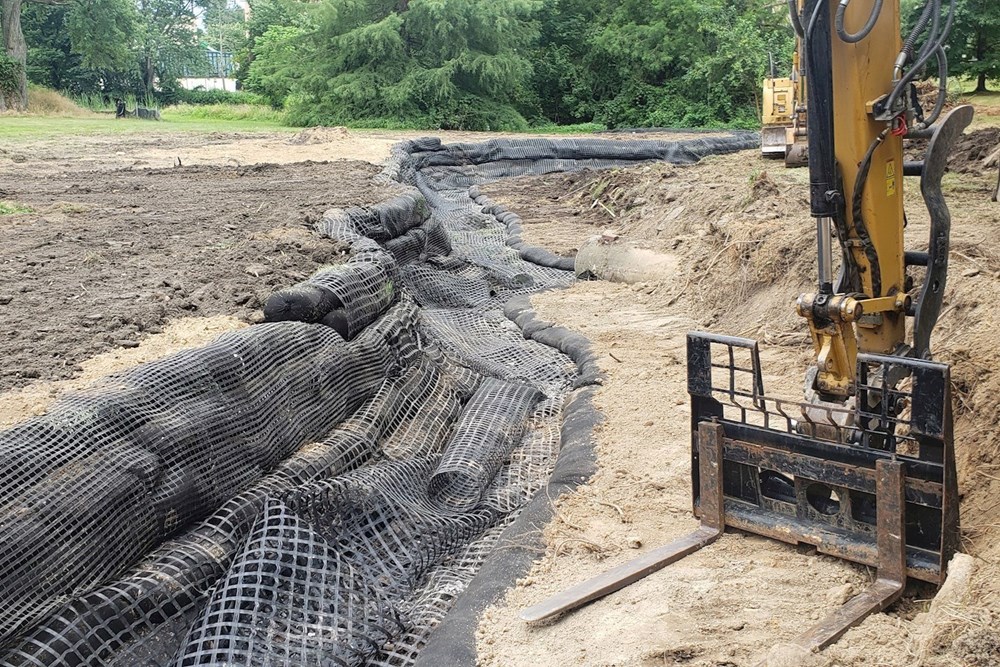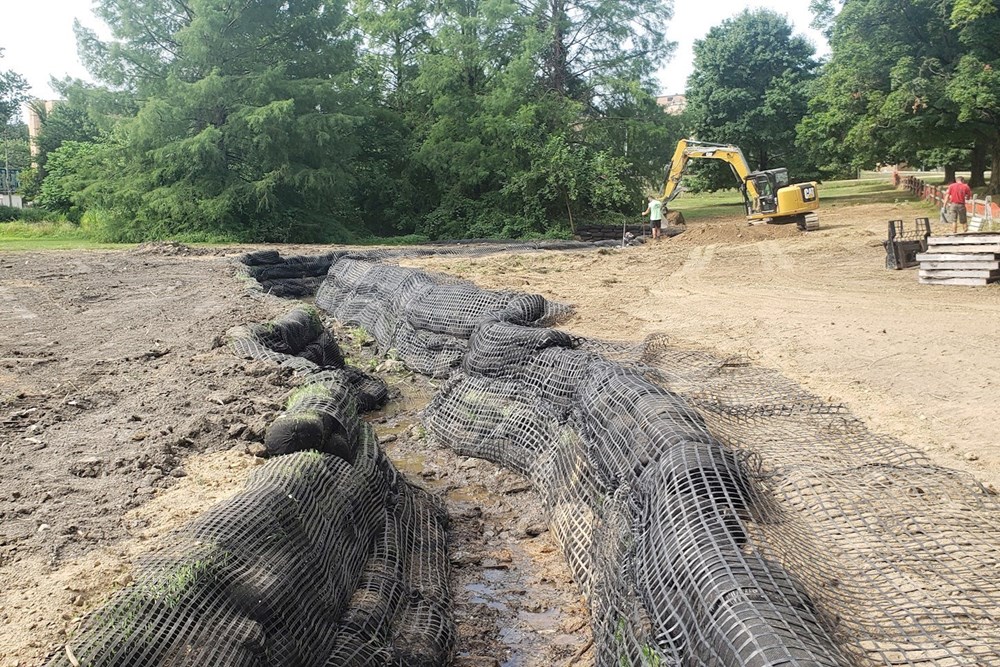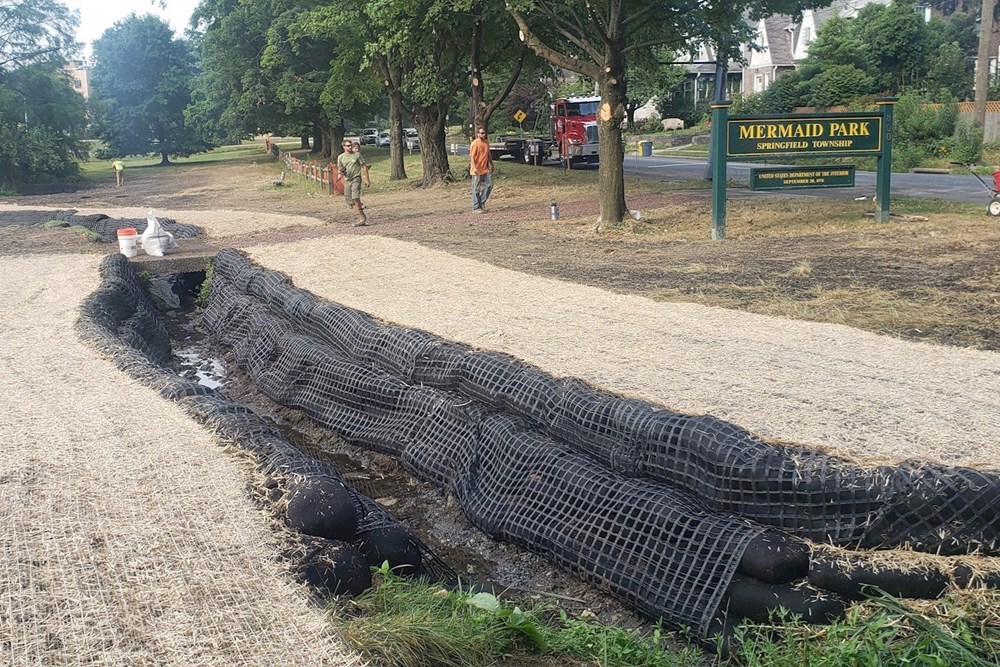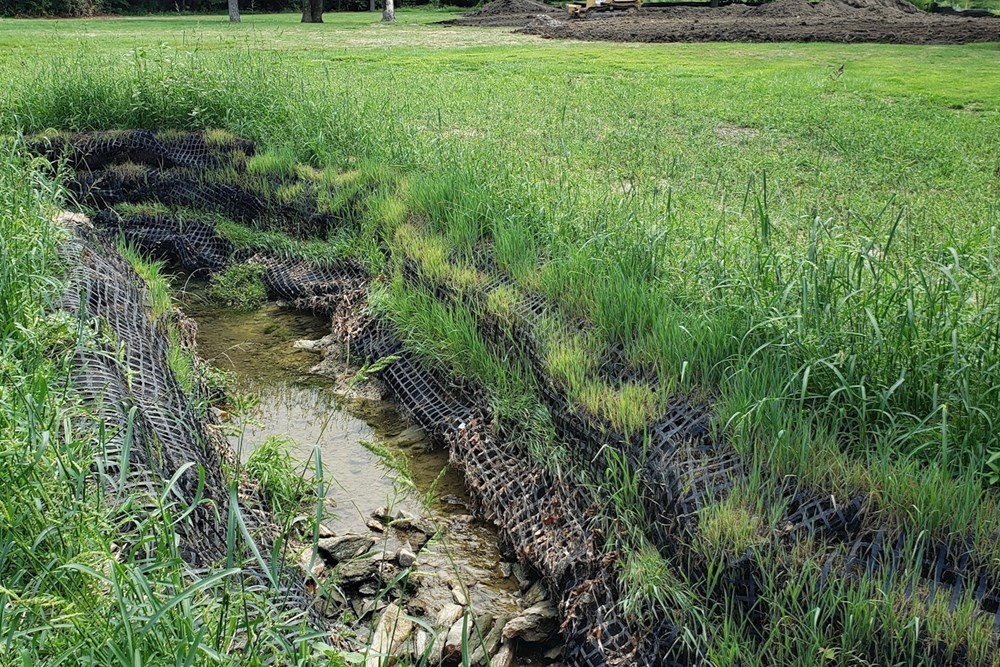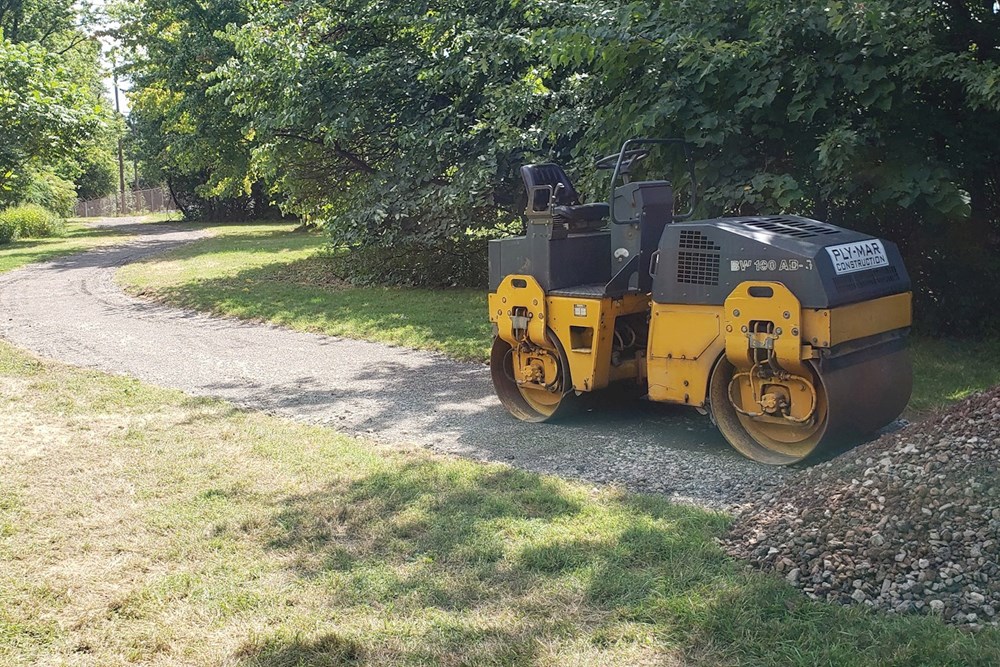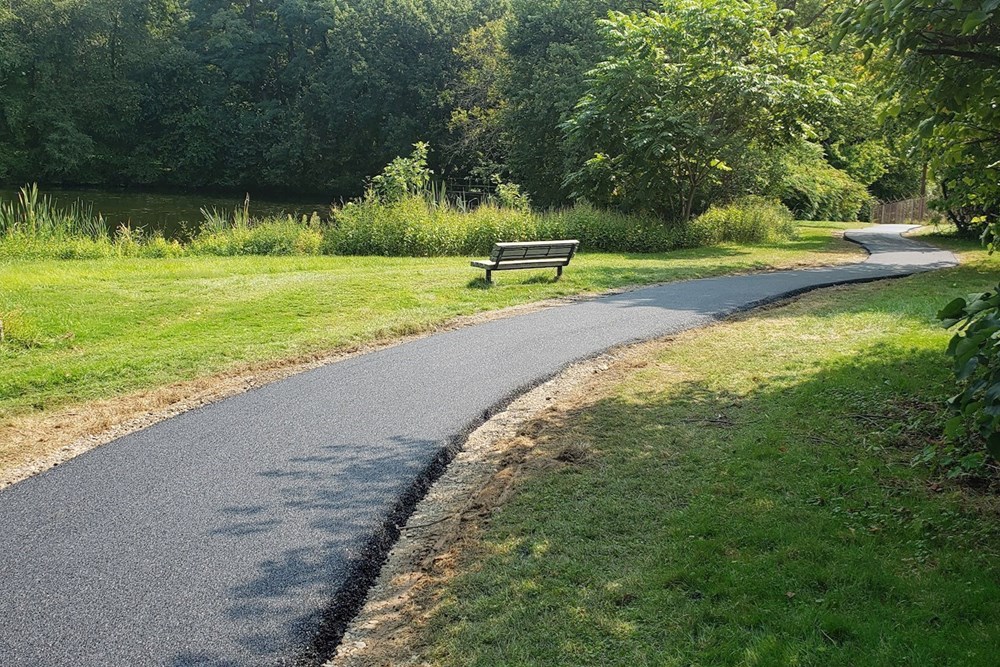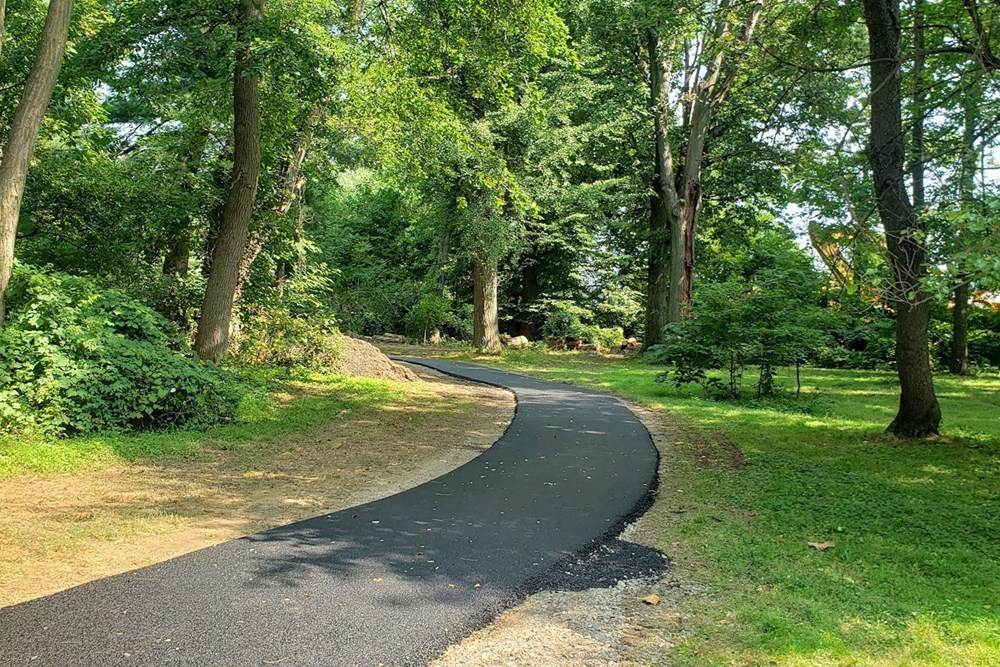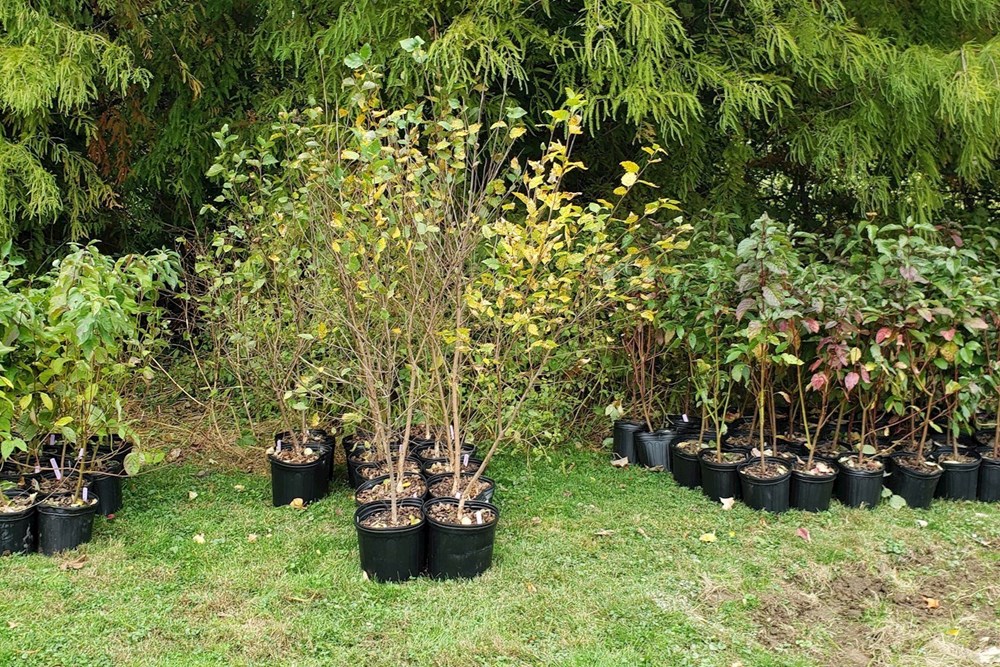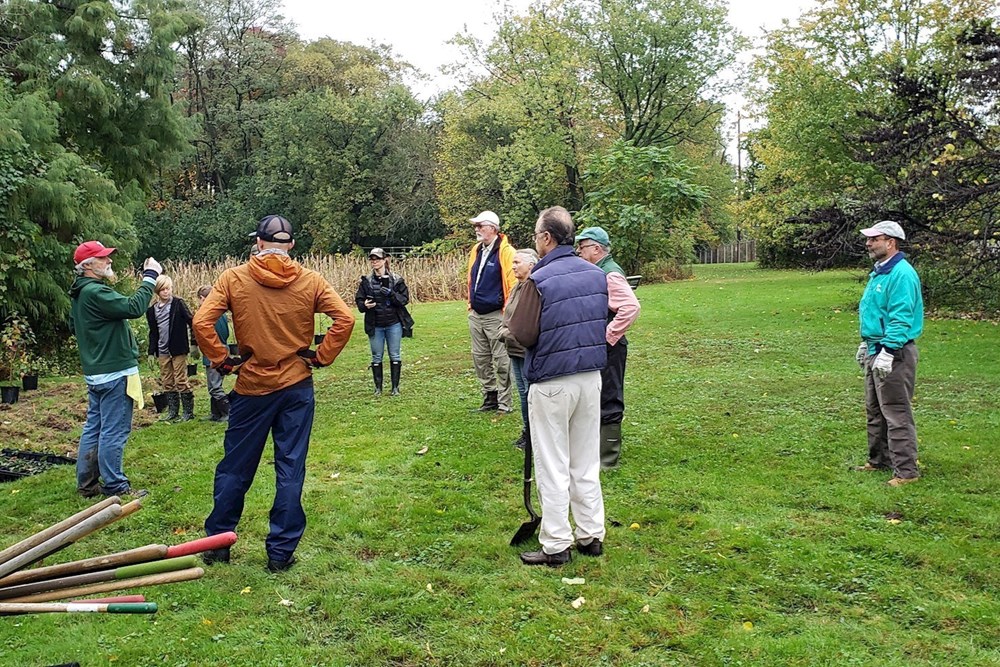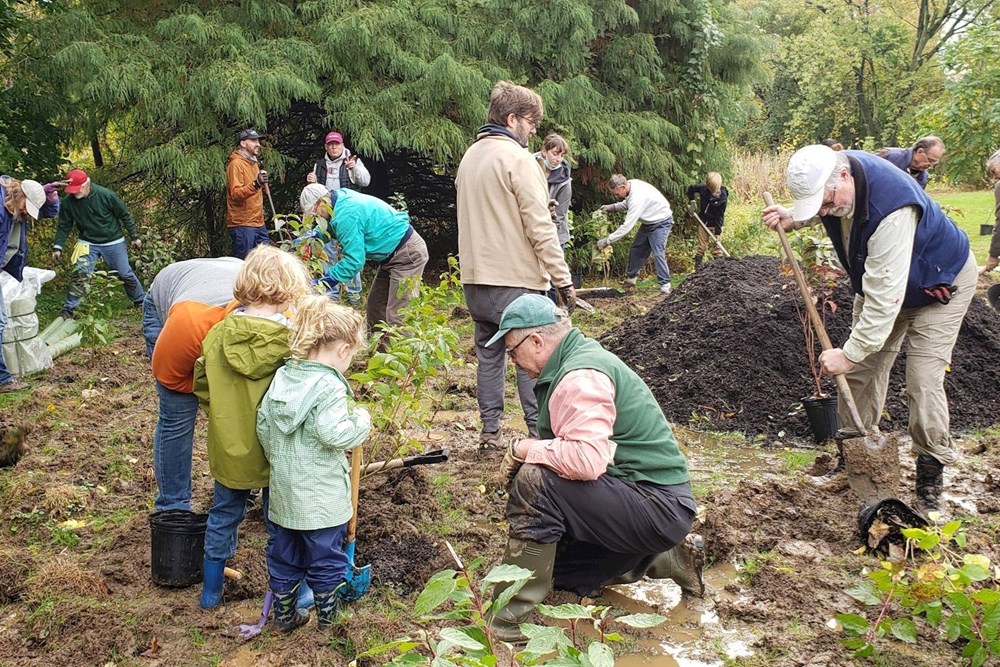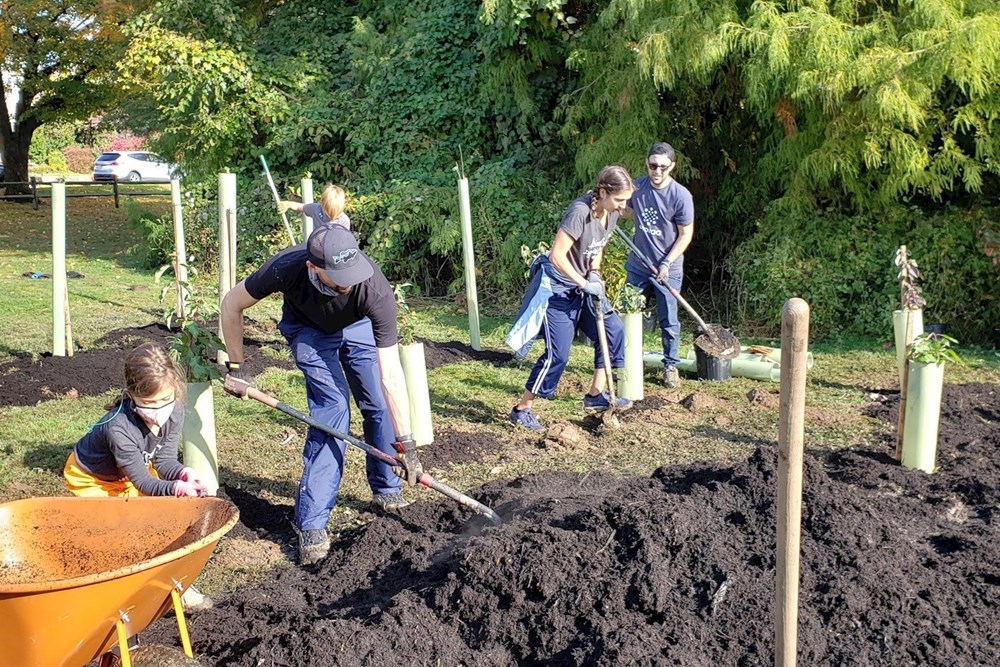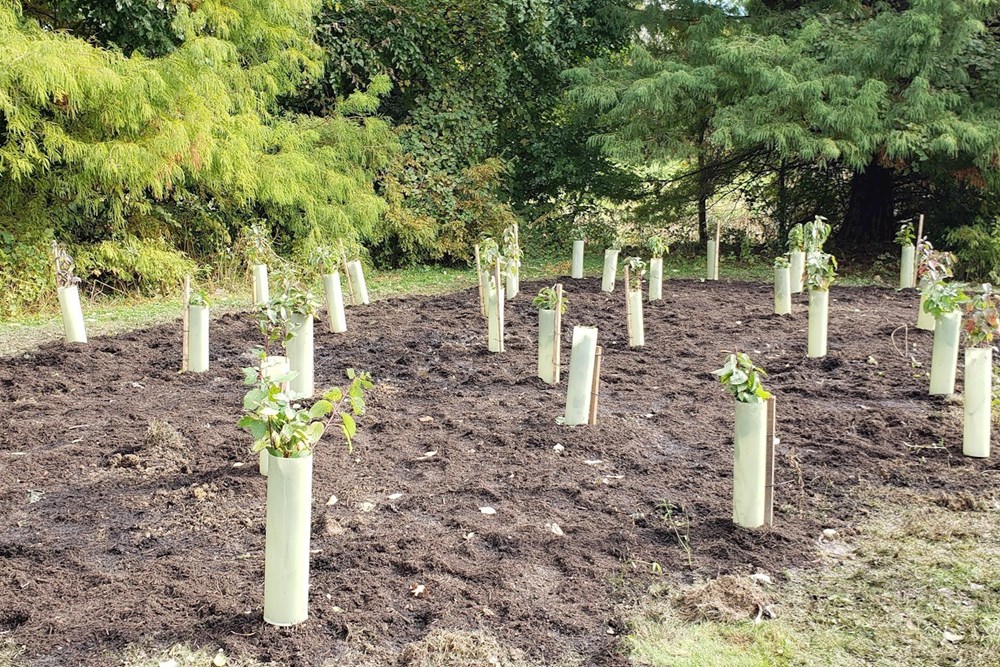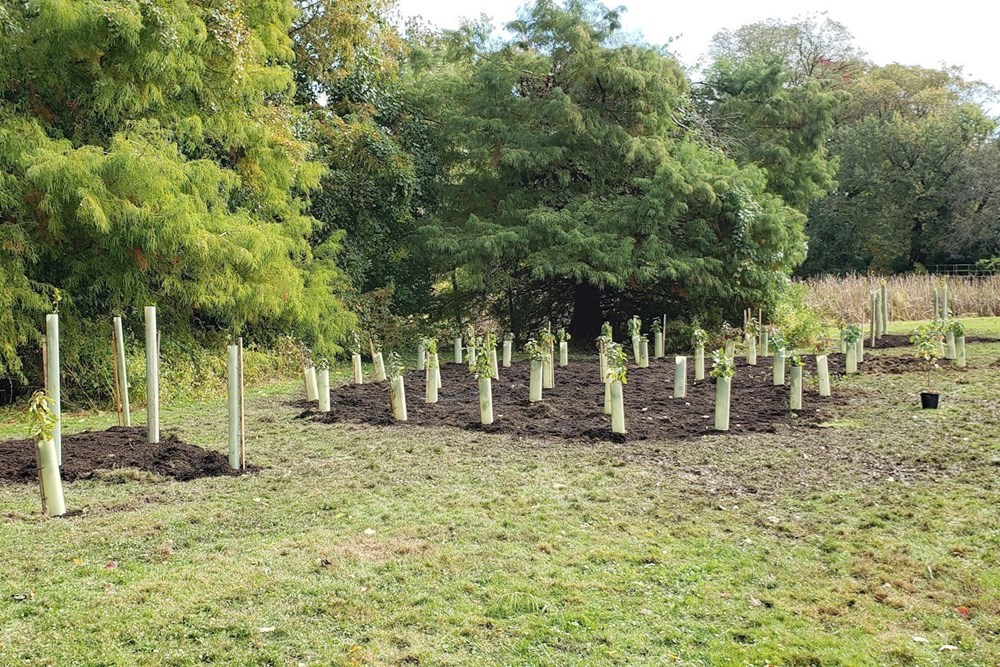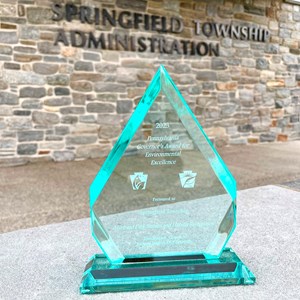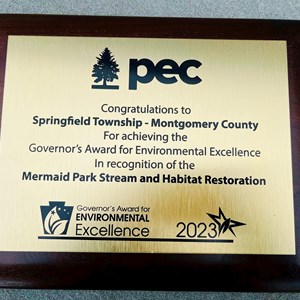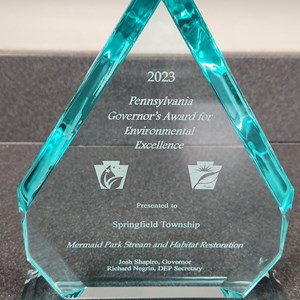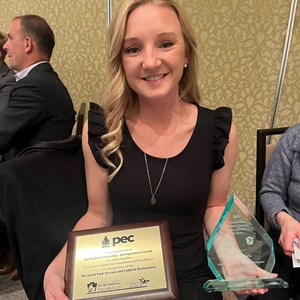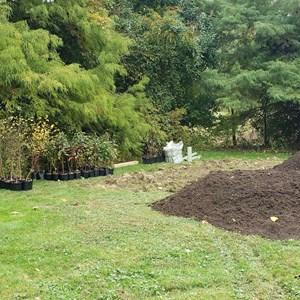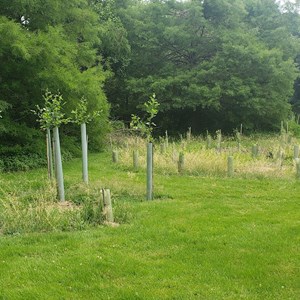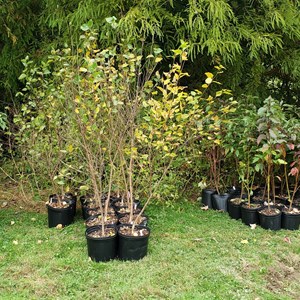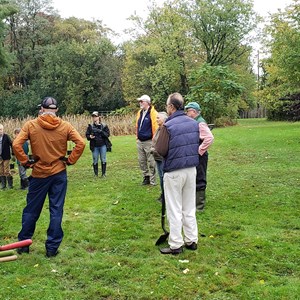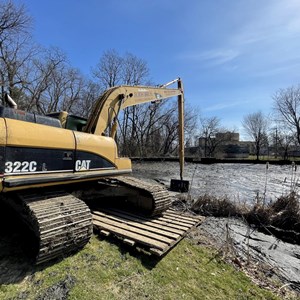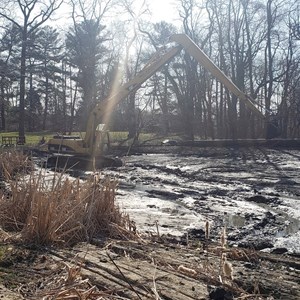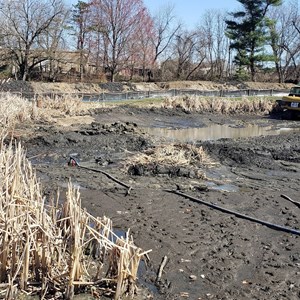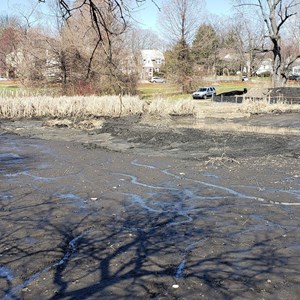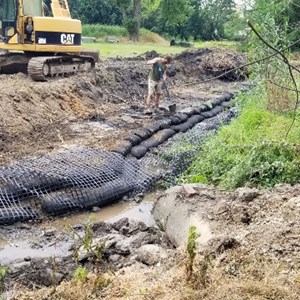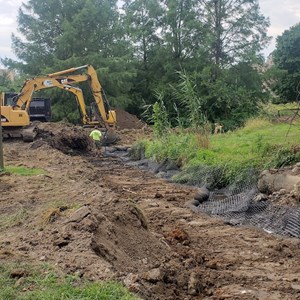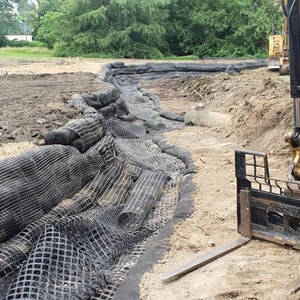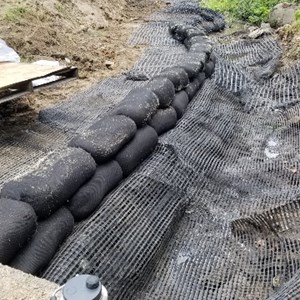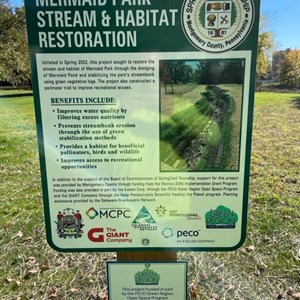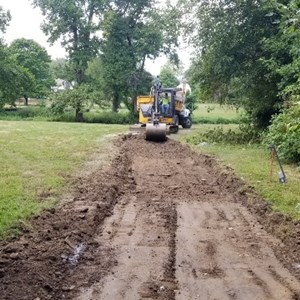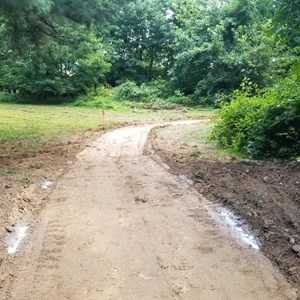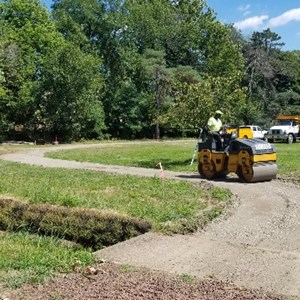Mermaid Park Restoration
Township Invests in Restoring the Environment in Mermaid Park
About the Project
In 2019, a resident alerted Springfield Township to the impaired health of the pond in Mermaid Pond. Excessive sediment deposits from stormwater runoff and streambank erosion had shallowed the depth of the pond and produced harmful algae blooms that degraded the water quality and inhibited aquatic life through a process called eutrophication.
The Township spent 2020 and 2021 planning and securing the necessary funding needed to restore the streambank and habitat of Mermaid Park. The Township was successful in securing over $223,000 in funding from the Montgomery County Planning Commission's Montco 2040 Implementation Grant Program, the Giant Company and Keep Pennsylvania Beautiful Healing the Planet Grant, PECO and Natural Land's Green Region Open Space Program, and the TreeVitalize program. Contracts for the project were awarded by the Township in early 2022 and and completed in October 2022.
The Mermaid Park Restoration Project resulted in:
- Dredging Mermaid Park's pond to remove 3,000 cubic yards of sediment and deepen the pond
- Stabilizing 190 linear feet of streambank leading into the pond to reduce future erosion and prevent 8,527.20 lbs./yr. of sediment from being deposited into the pond from stormwater runoff; the Township used an innovative green technique using vegetative logs where the roots of the vegetation will grow into and stabilize the streambank (more details below)
- Constructing a 2,055 ft. walking trail with environmental education signage to raise public awareness of the reasons for undertaking this project and its many environmental benefits (i.e. water quality improvements, habitat restoration, etc.)
- Planting a meadow verge of seventy-two (72) native trees, shrubs, and tall grasses to filter surface stormwater runoff and capture sediment before it enters the stream/pond
Contractors/Volunteers:
Action Item 1 (Pond Dredging) - Toth Bros. Clearing & Dredging, Inc.
Action Item 2 (Streambank Stabilization) - Western Lehigh Services, Inc.
Action Item 3 (Trail Construction) - Ply Mar Construction, Inc.
Action Item 4 (Meadow Planting) - Volunteer effort organized by the Springfield Township Environmental Advisory Commission and Delaware Riverkeepers Network
About Eutrophication
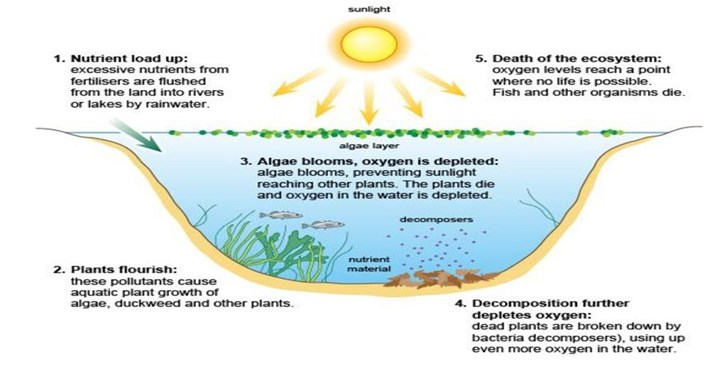
According to the U.S. National Oceanic and Atmospheric Administration, eutrophication occurs when an environment becomes enriched with nutrients, in our case from stormwater runoff and streambank erosion, that increases the amount of plant and algae growth in bodies of water. Eutrophication sets off a chain reaction in the ecosystem, starting with an overabundance of algae and plants. The excess algae and plant matter eventually decompose, producing large amounts of carbon dioxide. This lowers the pH of seawater, a process known as acidification, which further degrades the local habitat.
The Mermaid Park Restoration Project directly addressed the impacts of eutrophication by dredging to remove sediment (including algae and nutrients) from the pond, stabilizing the local streambank to prevent future erosion that was contributing to the deposit of excess nutrients, and planting a meadow of native plants and tall grasses that will help filter stormwater runoff and capture additional sediment before stormwater reaches the stream/pond.
Our Green Approach to Streambank Stabilization
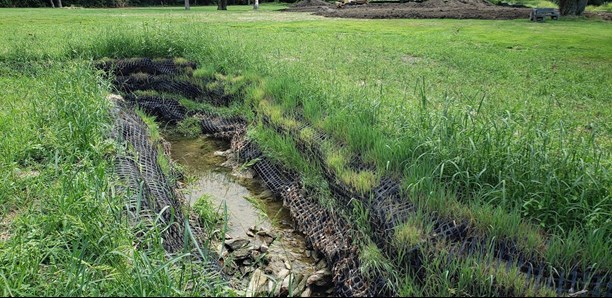
As opposed to traditional armored or concrete streambank stabilization techniques, the Township utilized a more green/sustainable approach to this portion of the project. Instead, the Township opted to use a vegetative or living wall product where the plant material contained in affixed mesh socks will grow into the streambank. The roots of the vegetation then locks soil in place and stabilizes the streambank using the natural rootsystem. The addition of vegetation growing through the facing with healthy roots penetrating the entire structure adds environmental service, natural aesthetics and structure.
